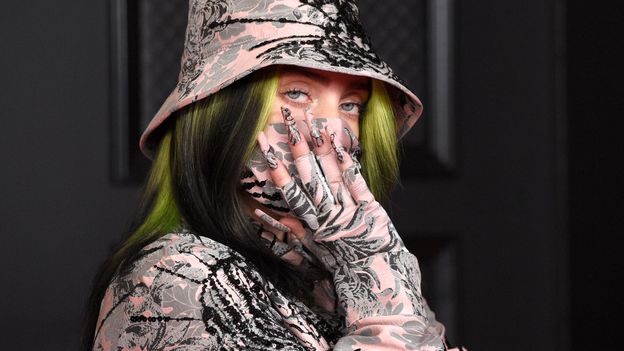

“Music should speak of the times. My music does talk to what’s happening now,” Ajudha tells BBC Culture. “A contemporary artist should be writing about what’s going on the world, because that’s a marker of history; you can’t erase a song that people love. So much of history is erased, but pop music is subversive; it does bring people together to create change.
“When I went to university, and I studied gender, anthropology and contemporary trends in society, being emboldened by the knowledge of incredible writers and thinkers made me realise what I wanted to write about and sing about: that was about feminism, social issues, my mixed-race heritage. It was about identity, because it plays such a big role in how we see ourselves and how society sees us. I think that just grew, the more I wrote songs, and I saw how people were reacting to them. It felt like it was making people feel less alone. I realised, ‘this is why I wanna do this; this is what music is about’ – we’re supposed to be connecting, sharing experiences, and getting through shit together. I don’t want my music to just comment on how difficult things are, I want them to feel empowered to do something, regardless of what the world tells them, to change the difficulties that they face.”
In tracks such as Strong Woman, Ajudha also argues that there is a coded strength in expressing personal challenges: “Artists carry a lot of emotion; we allow people to be vulnerable through our vulnerability. It’s kind of a blessing and a curse; it means that we’re very dramatic, but it also means that we get to feel the fullness of life, which can be overwhelming at times, but also very beautiful.”
As contemporary pop becomes increasingly globalised, its coded messages and connections feel more expansive than ever, beyond a Western worldview. Where English has traditionally been the lingua franca of mainstream pop culture, the meaning of pop has broader possibilities than ever for contemporary fans – whether they’re learning new vocab and social perspectives while following their favourite K-pop, Afrobeats or Latin stars, or posting responses to Billie Eilish’s “hidden message” in a multiplicity of scripts.
“Pop taps into the idealism of youth; it raises awareness of gender, race, emotion, with elements you can interpret as you want,” says Kadis. “The fact that it translates across the world, across different languages and cultures – that’s the power of pop music.”
If you would like to comment on this story or anything else you have seen on BBC Culture, head over to our Facebook page or message us on Twitter.
And if you liked this story, sign up for the weekly bbc.com features newsletter, called The Essential List. A handpicked selection of stories from BBC Future, Culture, Worklife and Travel, delivered to your inbox every Friday.